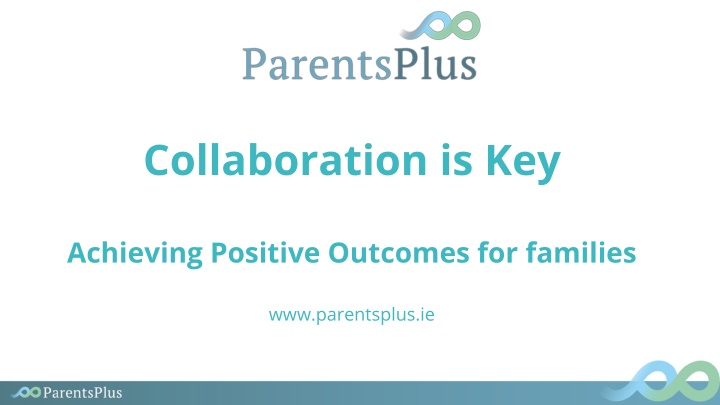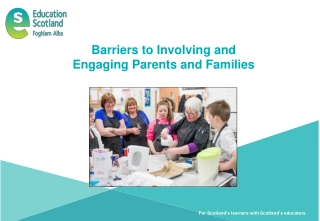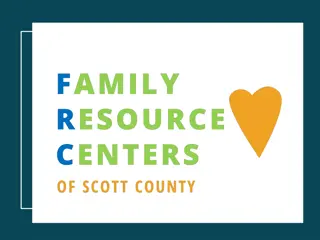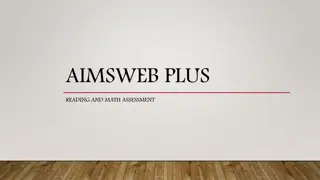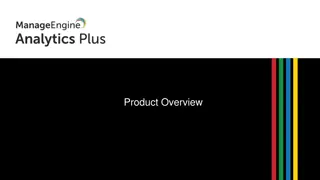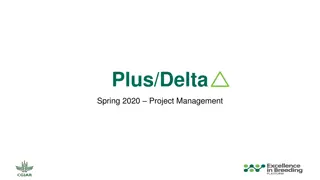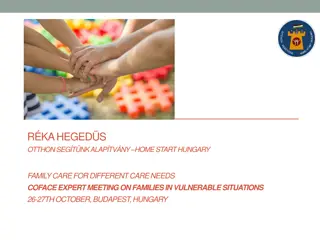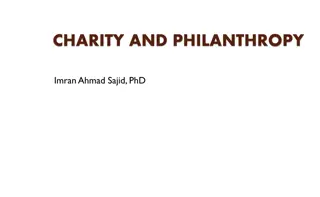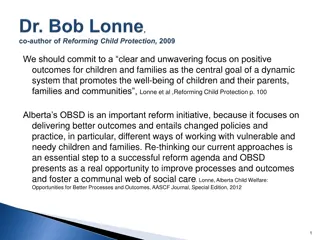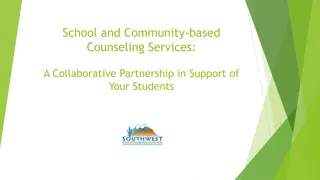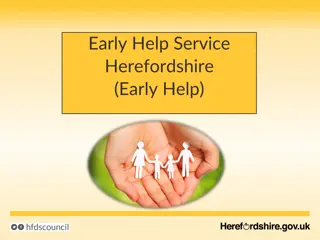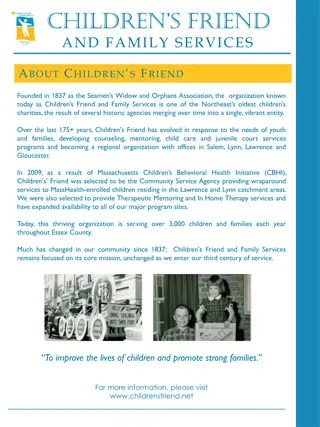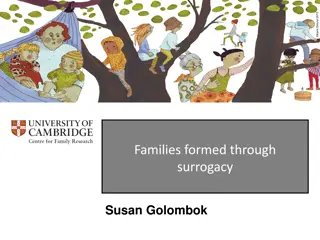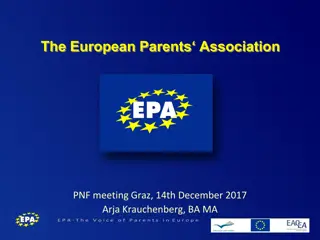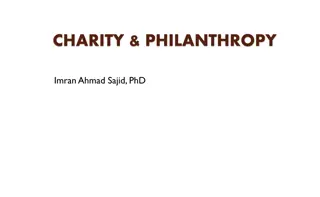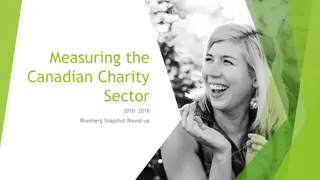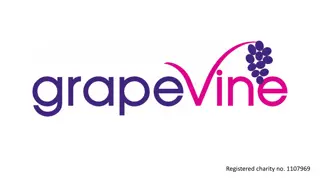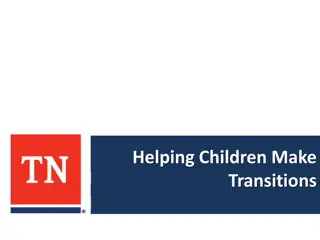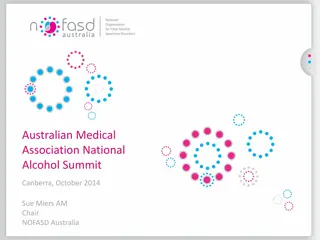Positive Outcomes for Families: Parents Plus Charity Mission
Parents Plus is a charity dedicated to improving family outcomes through evidence-based parenting and mental health programs. They focus on collaboration, values, and strengths to create effective interventions for families. With a strong research base, their programs have shown success in reducing emotional/behavioral problems, parental stress, and improving family well-being and communication.
Download Presentation

Please find below an Image/Link to download the presentation.
The content on the website is provided AS IS for your information and personal use only. It may not be sold, licensed, or shared on other websites without obtaining consent from the author.If you encounter any issues during the download, it is possible that the publisher has removed the file from their server.
You are allowed to download the files provided on this website for personal or commercial use, subject to the condition that they are used lawfully. All files are the property of their respective owners.
The content on the website is provided AS IS for your information and personal use only. It may not be sold, licensed, or shared on other websites without obtaining consent from the author.
E N D
Presentation Transcript
Collaboration is Key Achieving Positive Outcomes for families www.parentsplus.ie
Parents Plus Charity Mission To improve outcomes for families through training and supporting professionals to deliver evidence-based parenting and mental health programmes
Parents Plus Values and Strengths Develop programmes to meet social challenges Partnership with parents, children and families in development Collaboration with professionals, agencies and community Evidence based integrating practice and research Comprehensive post training support to agencies to ensure good outcomes
Our Programmes Evidence-based, positive and practical interventions for families
Parents Plus Evidence Base 25+ research studies, including 7 RCTs & 4 studies independent from developers, all show evidence for effectiveness of Parents Plus Programmes. Studies consistently show that the Parents Plus Programmes are effective in: Reducing emotional/ behaviour problems in children and teenagers Reducing parental stress Improving family communication and well-being Achieving high parent satisfaction in a variety of contexts and with a large range of presenting problems and issues.
Parents Plus Evidence Base Original Programme (Behan et al. 2001; Quinn et al., 2006; 2007) Adolescent Programme (Beattie et al., 2007; Nitsch et al., 2011) Early Years Programme (Behan et al., 2005; Griffin et al., 2006; Hayes et al., 2013) Children s Programme (Coughlin et al., 2007; Hand et al., 2012; Hand et al., 2013) ADHD programme ( Turan et al., 2021) Parenting When Separated (Keating et al., 2013) Working Things Out (Brosnan, 2015; Fitzpatrick et al. 2015) PPAP & WTO (Rickard et al., 2015; Wynne et al., 2015) Special Needs Programme (Mc Mahon et al, 2023) Healthy Families programme ( McDaby, 2020) Prof Alan Carr UCD conducted a meta-study of 17 of the studies published in 2016
Parents Plus Programmes Research Evidence
Adolescents Programme
Parents Plus Adolescents Programme Parents Plus Adolescents Programme Promoting effective communication and positive relationships with adolescents aged 11 to 16 years. aged 11 to 16 years. Promoting effective communication and positive relationships with adolescents Core Inputs Core Inputs 1. Relationship Building with teenagers 2. Conflict resolution / Behaviour management 3. Problem Solving for families 1. Relationship Building with teenagers 2. Conflict resolution / Behaviour management 3. Problem Solving for families Extra topics can be added on: Depression / Anxiety Education, homework & learning Extra topics can be added on: Depression / Anxiety Education, homework & learning Specific issues such as technology, bullying etc. Specific issues such as technology, bullying etc.
Parents Plus Adolescents Programme PPAP Session by Session Individual Session 1: Screening Group 1: Introduction to course & Positive communication Promoting effective communication and positive relationships with adolescents aged 11 to 16 years. Group 2: Getting to know your teenager & Establishing rules Group 3: Connecting with your teenager & Communicating rules positively Core Inputs 1. Relationship Building with teenagers 2. Conflict resolution / Behaviour management 3. Problem Solving for families Group 6: Empowering teenager & Dealing with conflict and aggression Individual Session 2 Group 4: Encouraging your teenager & Using consequences Group 5: Listening to your teenager & Having a discipline plan Extra topics can be added on: Depression / Anxiety Education, homework & learning Specific issues such as technology, bullying etc. Individual Session 4: Follow Up Individual Session 3 Group 7: Problem Solving & Dealing with specific issues Group 8: Dealing with specific issues & Course evaluation
Thank you for listening! www.parentsplus.ie
Parents Plus Adolescents Programme PPAP Clinical Setting (CAMHS) Research Promoting effective communication and positive relationships with adolescents aged 11 to 16 years. Individual Multi-site controlled clinical study Compared to Treatment as Usual (n = 38) PP group (n = 17) showed significant reductions in: *Total Difficulties measured by Strengths and Difficulties Questionnaire SDQ *Conduct Difficulties as measured by SDQ *Peer Difficulties as measured by SDQ (PSS) PP group showed greater parental goal attainment and reported greater improvement in their relationship with their teenager Core Inputs 1. Relationship Building with teenagers 2. Conflict resolution / Behaviour management 3. Problem Solving for families Extra topics can be added on: Depression / Anxiety Education, homework & learning Specific issues such as technology, bullying etc.
Parents Plus Mission To improve outcomes for families through training and supporting professionals to deliver evidence-based parenting and mental health programmes We are a community of professionals who want to make a difference with the families we work with.
Programme Delivery Delivered over 6-12 weeks to parents or young people, individually or in small groups. Collaborative, solution-focused and strengths-based. Facilitated group delivery - group discussion, worksheets, exercises, video input, role-play, handouts and homework. Comprehensive professional training, facilitator manuals, parent books, DVDs. Post-training support, supervision and accreditation for facilitators. Can be adapted with the inclusion of extra modules (e.g. mental health, addiction) and therapeutic inputs ( family therapy, individual support etc.)
